Phone: 303.945.2490 Fax: 866.592.6911 Email: [email protected]
621 Kalamath St. Ste 175, Denver, CO 80204
JOIN US FOR A 2024 HEALING ADVENTURE!
My new friend Spaceballs and I walk through the tall grass at the Lake Manyara Rift Valley and enter the clearing where zebras, jackals, gazelle, wildebeest and warthogs all roam close enough to kill us before we could utter “hakuna matata.” We turn our heads and see more animals. Then we turn our bodies in a full circle and see animals everywhere. We are wearing long pants and button-downs coated in permethrin to deter malaria-carrying mosquitos, safari hats, daypacks, sunglasses and binoculars.
All that lies between the animals and us is Lingato, our guide who is a Massai warrior. Lingato, dressed in a red sheet, holds a spear with which he can throw at and hit a precise blade of grass fifteen feet away. Lingato tells us about the time he killed a lion—out of self-defense and never for sport. “When lion attacks, I throw my spear from far enough away that if I miss then I can still grab my knife. That is my last line of defense. Maasai warriors do not fear the lion. Maasai warriors do not hesitate.”
Lingato says it is possible for two lions to attack at once. “I only have one spear, so I can only kill one lion.”
He doesn’t describe exactly how we would survive if two lions attack.
This is Africa.
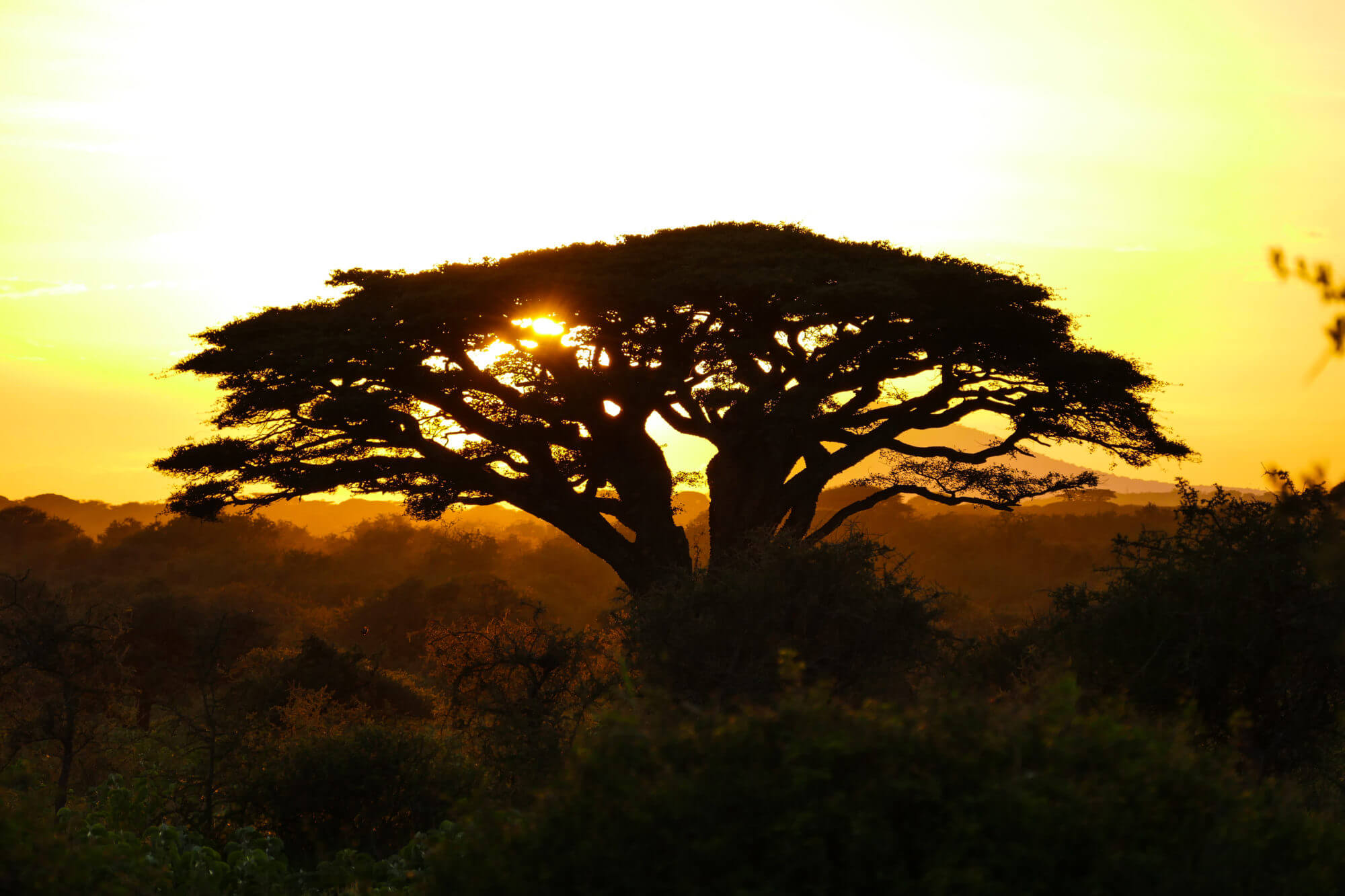
I met Spaceballs the day we left for Africa, even though we live just 20 miles apart and share the same religion, sense of humor and employer. We registered for FDX Africa, a week-long safari in Tanzania through Mark Thornton Safaris. We booked identical flights for the trip including an additional day to visit Zanzibar, the semi-autonomous archipelago east of Tanzania. Half of Spaceballs’ large intestine was removed due to colon cancer. I guessed that meant the traveler’s diarrhea we all would inevitably get would speed through him even faster.
Spaceballs and I met the remaining group members either during our layover in Amsterdam, Netherlands, or at the first lodge in Arusha, Tanzania. A third of them had had breast cancer. Based on their discussions I considered that straight women love breasts more than straight men do, but Shredder clarified that’s only true for breast cancer survivors.
Bubbe—the loud, unfiltered, totally American and total New Yorker who had breast cancer several years ago—schooled me on breasts. I can now enter a conversation about the varying implant technologies and methods to keep them high on the body with strong pectoral support. Bubbe said, “A minute after Avocado [another breast cancer survivor] introduced herself to me I had to interrupt her and say, ‘Sorry I didn’t hear anything you said, I can’t stop staring at your breasts.’
“Avocado has like the BMW of breasts while I’m driving an old Hyundai.”
Bubbe is upgrading hers this spring. She let me cop a feel and I thought, Oh this is cool I’m touching a breast right now. I did not think,These breasts need upgrading, so maybe I’m not ready to enter that conversation quite yet.
Bubbe told me their breasts glow red when they shine a flashlight through them when in the dark, displaying their veins like a road map and their nipples (or tattooed nipples) like a silhouette. When Shredder had found this out a year after her surgery she asked her surgeon why he hadn’t told her. “Because then you would show them off,” she said he told her.
“I show them off anyway!” she had replied.
“You can do the same with your balls,” Bubbe told me.
Did I know this when I was a little boy and feel the same intrigue they feel for their breasts, now in their thirties and fourties? Probably, but I can’t remember. I walked away, opened the flashlight app on my phone and unbuckled. Bubbe was right. I offered a trade—me showing off my glow-in-the-dark body part in order to see one of theirs—but Avocado photographed hers and shared the photos with everyone without demanding anything in return. Like Shredder said, they love breasts.
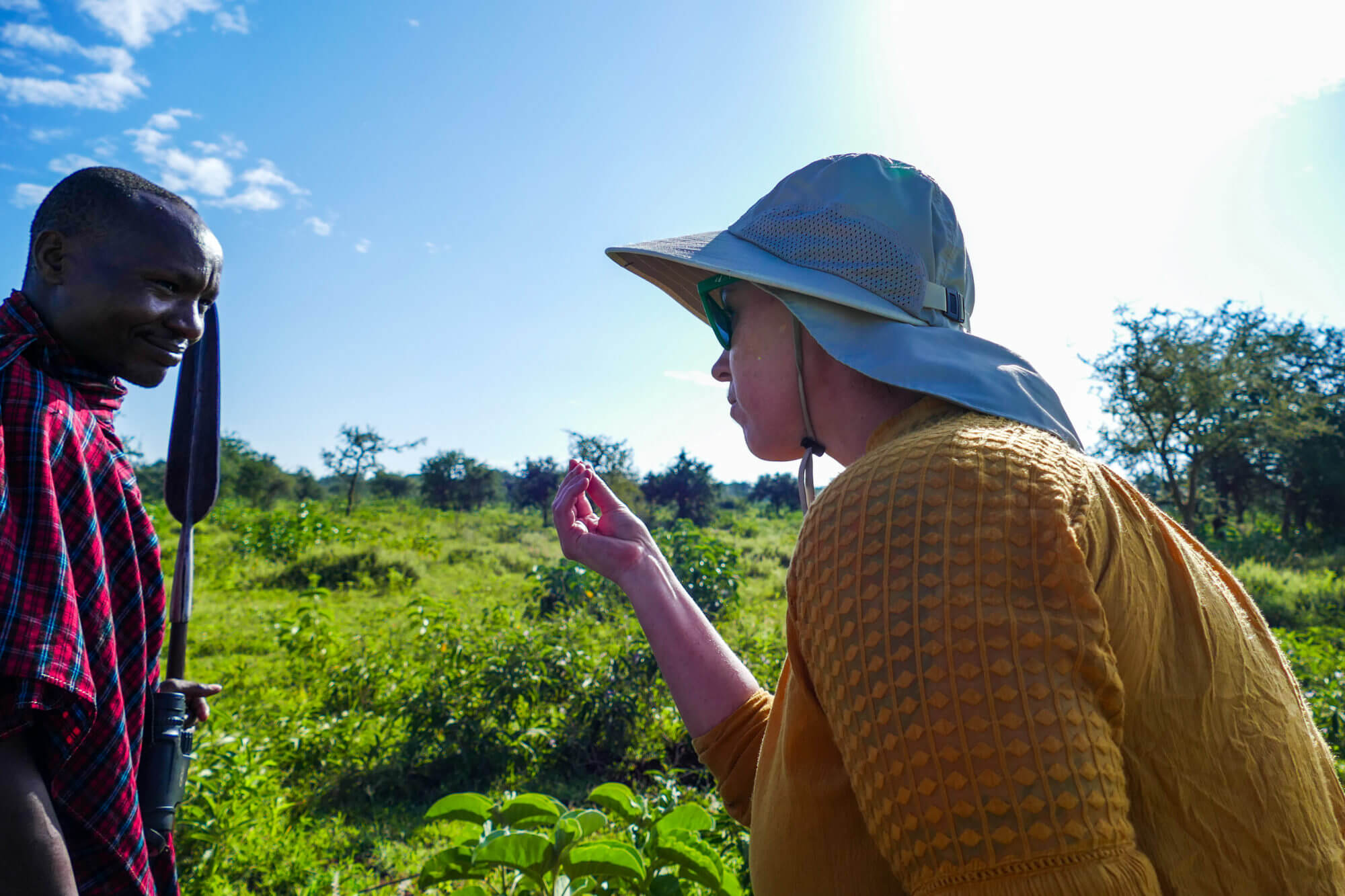
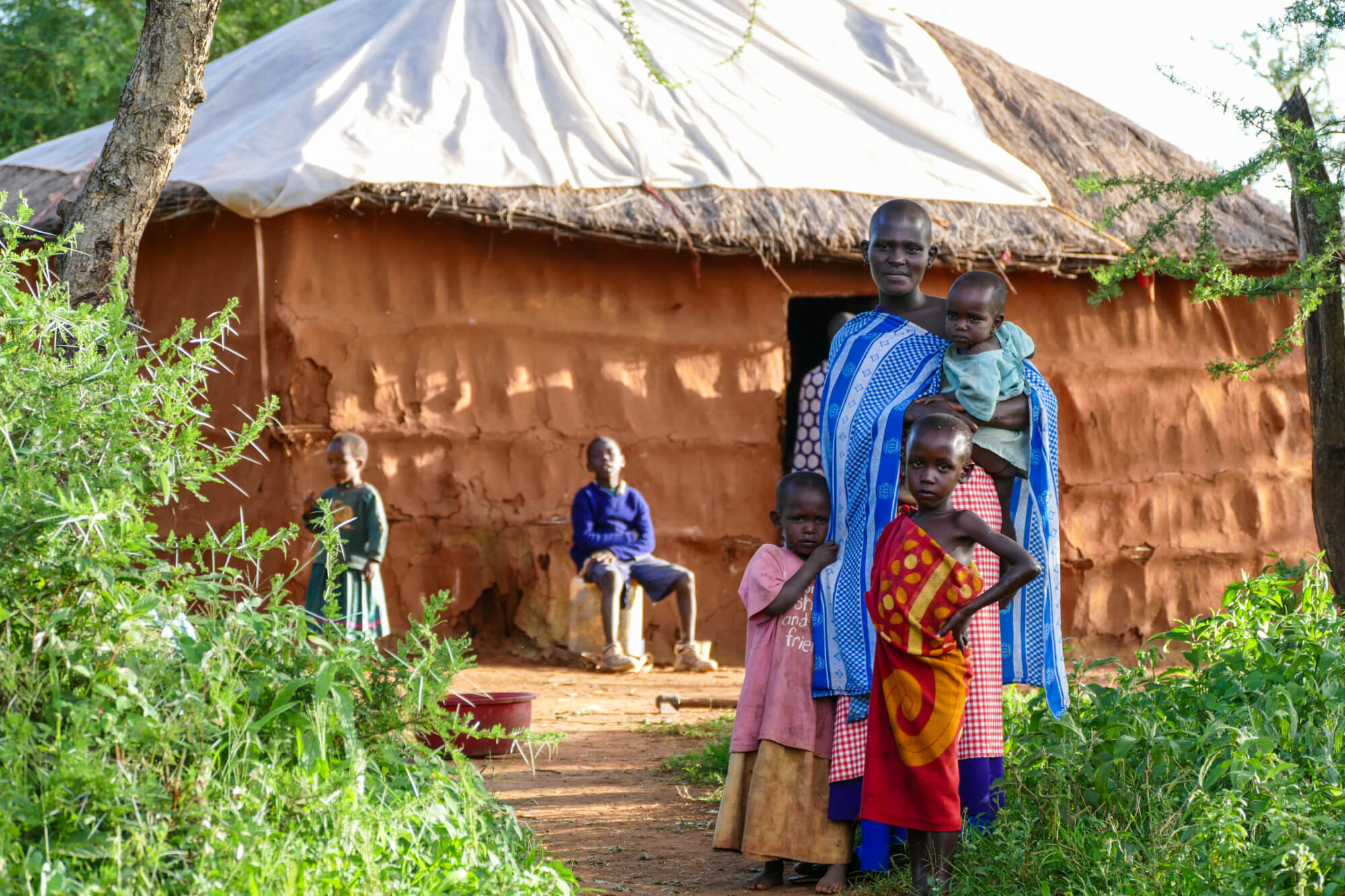
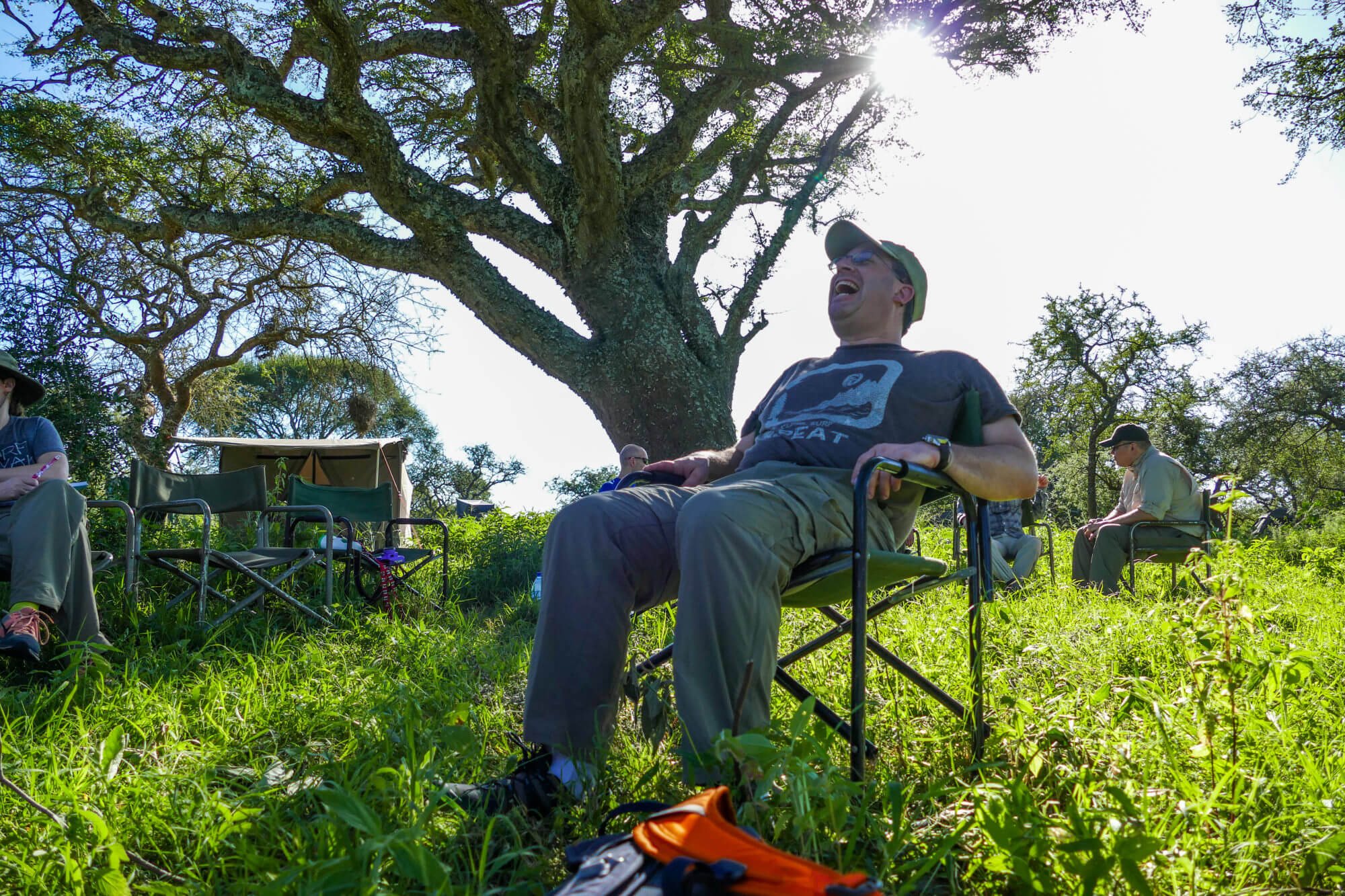
While many of our post-campfire evenings revolved around breasts, our days revolved around animals. Our safari included walking and driving around the Maasai Steppe and Tarangire and Lake Manyara National Parks, and driving through the Ngorongoro Crater. For the first two walks, all twelve participants, our FD lead staffer and our three guides walked single-file in silence. One guide, a Massai warrior, held a spear and Rambo-like knife, and one guide held a gun as a potential last resort. We got close enough to many of the animals to see every detail through binoculars.
I never expected to get close enough to nearly touch a 900-pound living mass of muscle and grace. Full of adrenaline and awe, my evening at Rift Valley with Spaceballs and Lingato was one of my life’s best. Humans top the food chain because of our technology. But without it, we are no match for the animals we domesticate, kill and eat.
Sometimes that is true even with our technology. The next day, as we headed towards Ngorongoro Crater, our guide Elvis stopped the Land Rover when he spotted an elephant in the woods. It towered over the brush, its ears flopping as if listening to our whispers of, “Look at that giant fucking elephant oh my God!”
The elephant approached the road and stopped. It watched us. Would it turn back? Or would it charge? Our metal door and glass window would do little to slow the elephant’s tusks or legs. As much as human beings think we know—about cancer, about how animals think, about the benefits and detriments of consuming seven cups of coffee a day—we are generally ignorant.
The elephant continued on its way. Maybe it sensed we were simply cancer survivors there in peace and for the adventure of our lifetimes.
Childhood and young adult cancer survivors endure immense suffering and deal with additional effects later in life. Individuals who were never victimized by cancer say we are strong and badass. Sometimes we young cancer survivors agree. Sometimes they and we even think we are superhuman. During FDX Africa I considered the possibility that everyone in our group was a pussy compared to Tanzanians, many who live without electricity and running water. They make their own food, clothing and shelter; use every part of their resources, including their cows’ dung and slaughtered goats’ blood. After FDX Africa I returned to my cozy apartment three blocks from the underground train and one mile by car from a giant supermarket.
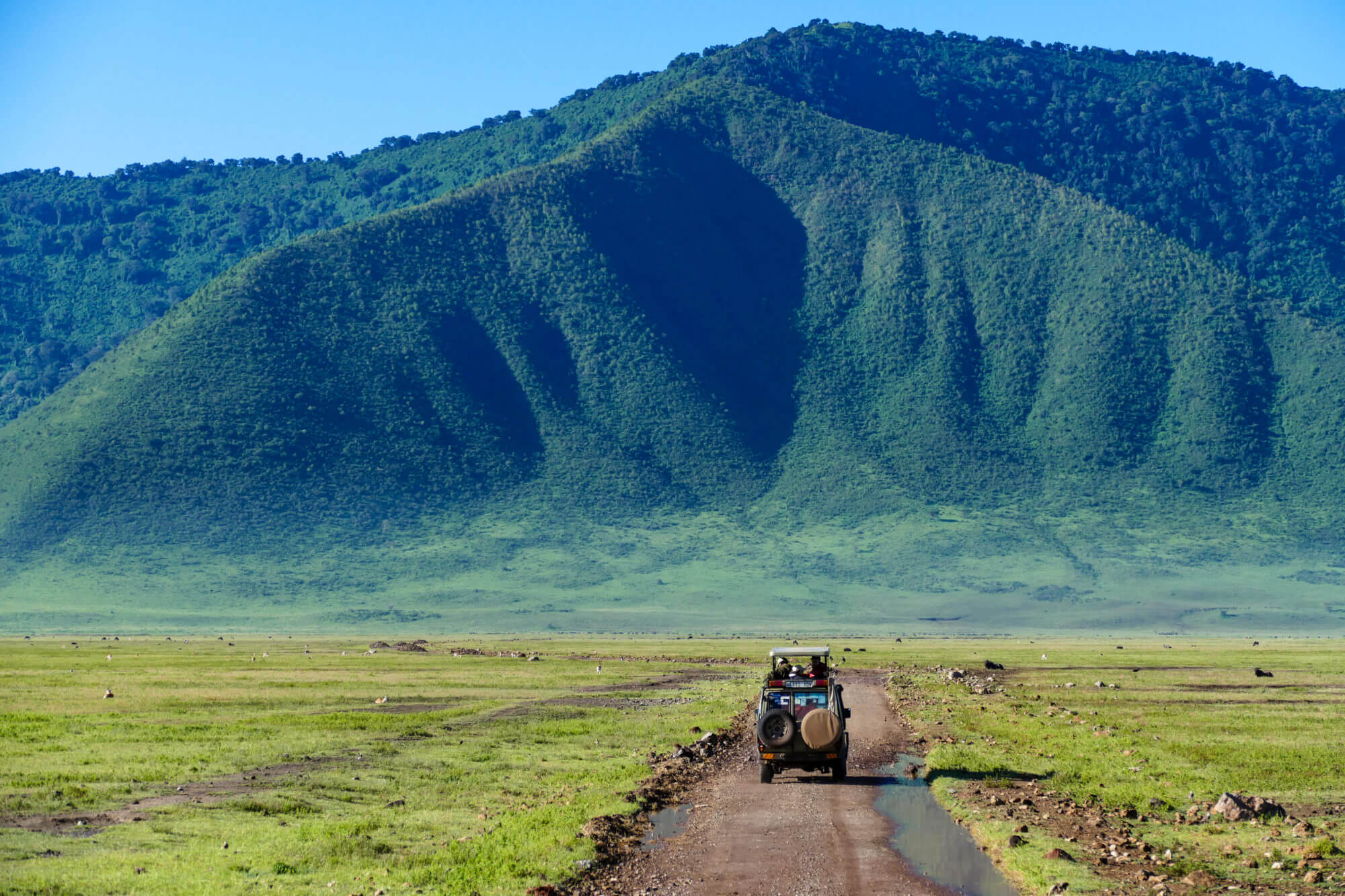
I wondered if the Maasai people whose boma I visited would want to trade lives with me. Would they want to exchange their physically, never-endingly demanding yet slow work for my stagnant, hyper-paced one behind a desk and monitor? Would they want a portable device that calculates, tracks and schedules every aspect of their lives so they no longer have to?
Walking through the jungle, with the sun both depleting my energy and soothing my worries, I understood why people and animals in Tanzania embrace the phrase “pole pole” (pronounced “polay polay”), which in Swahili means “slowly slowly.” We saw a lioness stalk a water buffalo, leading to a distant staredown between the two beasts. We saw a hyena chase a dik-dik (a small antelope), weaving through much larger wildebeest. In both instances the predators tired and quit. But they would be ready for the next opportunity.
Hakuna matata. This is Africa. And we fell in love with it.
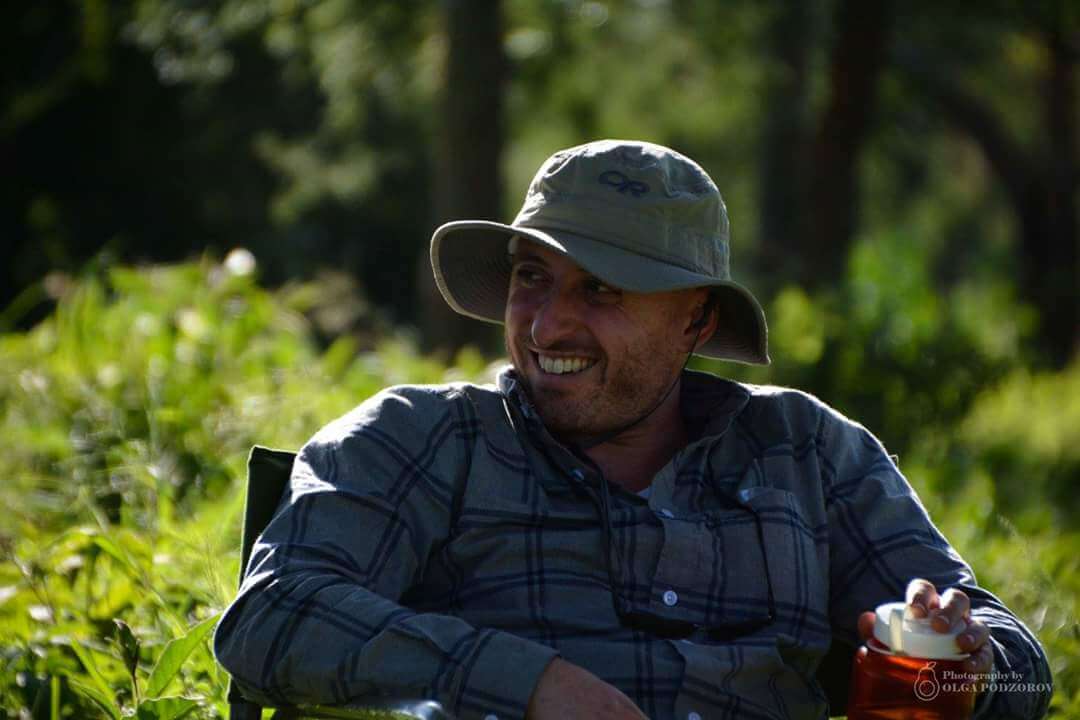
Benjamin (Hippy) Rubenstein is the author of the Cancer-Slaying Super Man books. Connect with him on Twitter and Facebook. You can also read about his FD1 trip rock climbing in Moab, Utah.
Such a great story teller my friend! ! Thanks for quoting me in your incredible rendition of my awesomeness!! Xoxox
Great story about your safari adventure. Your readers thank you for sharing your story.
Hippy–
Thank you for sharing an amazing experience. Your artistry made me feel as though I was actually there… sans the breasts… :-).
I wonder how many people live their lives through your writings? Thank you.